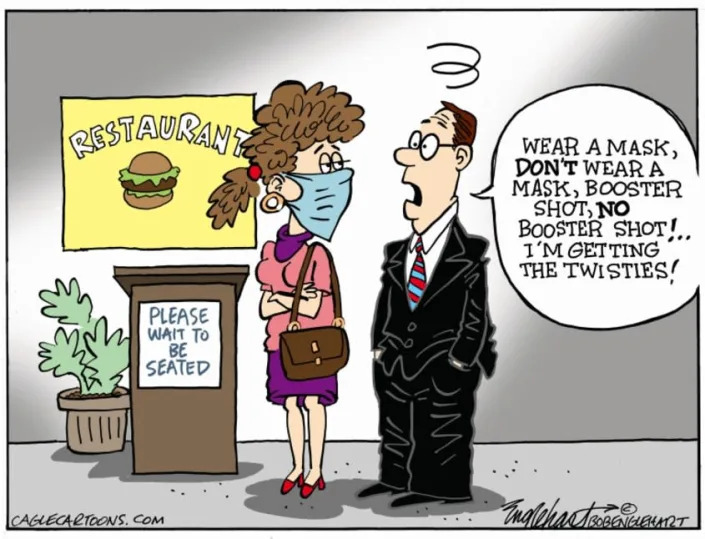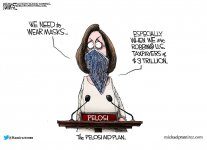Back in 2021 he could hide behind unknowns. But the graphs are out, and masks don't matter.
Masks reduce the flow of virus particles in both directions, when exhaled and inhaled.
Medical-grade N95 masks, so named because they filter at least 95% of particles, are the most effective. KN95 face coverings are in the same league, though be sure to check the rating label to avoid counterfeits.
Surgical masks don’t work quite as well, and cloth masks are the least effective. One study suggests that fabric masks block about half of virus-laden “aerosols,” though the rate varies with the size of these particles. Two layers are better than one.
Even blocking half of particles is a lot better than nothing, said Lakdawala, an associate professor in Pitt’s department of microbiology and molecular genetics. That’s because the immune system’s response to viruses is a numbers game.
Reducing the amount of virus exposure gives the immune system time to marshal its various defenses before the virus makes enough copies of itself to cause severe illness. Even if a masked person becomes infected, the disease is more likely to be mild, she said.

How we know that masks, even the cloth ones, reduce the spread of COVID-19
The evidence for masks comes from animal studies, lab simulations, and real-world observation.


